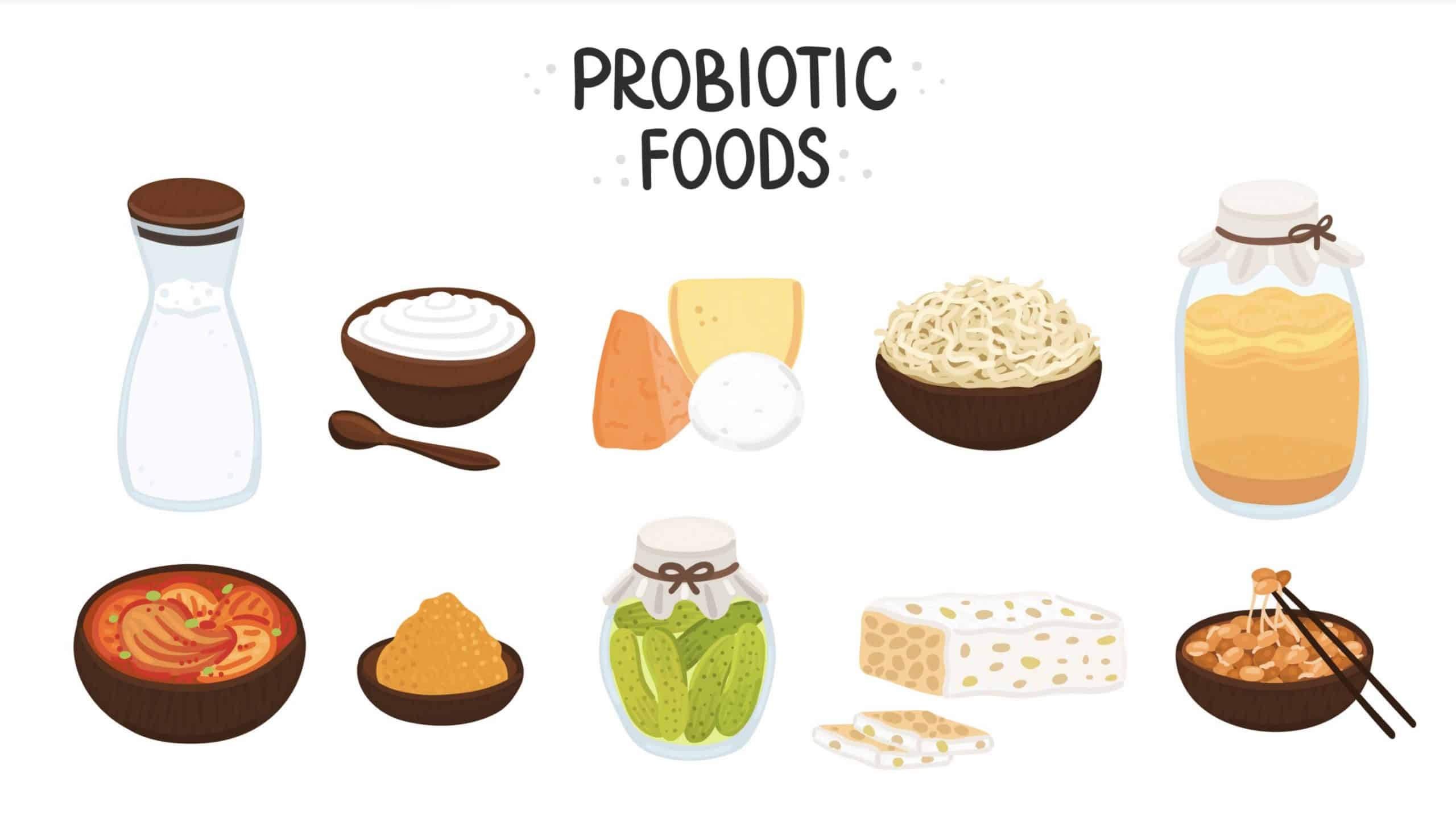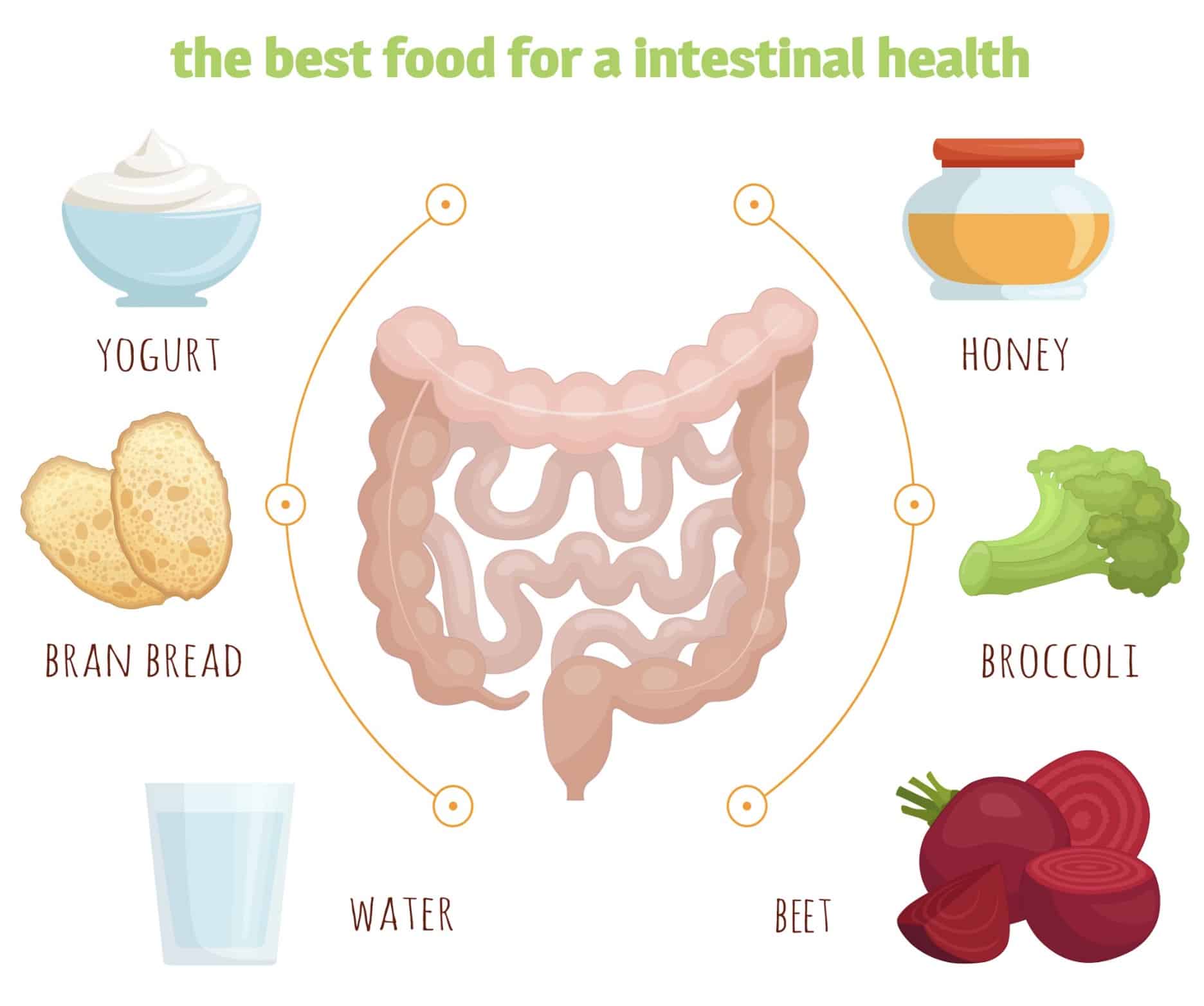It’s said that the intestinal tract has around four hundred billion bacteria–the good bacteria and three hundred species of the bad ones. There are many people that have a problem with bloating and diarrhea because of bacteria imbalance in our bodies.
If you’re experiencing gut problems, it’s essential for you to return it to its healthy state. This is because our gut plays an important role in our body. The main role and purpose of your gut are to regulate digestion, excrete waste, and absorb nutrients in your body. Because of these functions, it plays a major role in the development of your body and your immune system.
Because of the role it plays, you need to take good care of your gut to maintain a healthy lifestyle. With an unhealthy gut, you might experience a lot of digestion issues and stomach pains.
That being said, here are some ways to improve your gut health.
Chapter Overview
1. Have Probiotics

Probiotics, or friendly bacteria, can be helpful. Some studies indicate that they might help fight off illnesses such as irritable bowel syndrome and IBS. They also have the added benefit of improving one’s gut health and helping keep the gastrointestinal tract healthy by eliminating harmful bacteria.
Probiotics are known to improve your gut health as they can support healthy body systems from your mouth to your gut and control harmful microorganisms, such as bacteria and germs, from entering your gut. Studies have also shown how probiotics can provide constipation relief, especially those that are caused by pregnancy and digestive issues such as irritable bowel syndrome.
Unfortunately, having a poor diet won’t provide you with the benefits of probiotics. To further increase your probiotics, you can also buy them from a supplement or health food store. These stores specialize in probiotic food, which means that they will offer you a wide range of products, including capsules, powders, teas, shakes, and liquids.
2. Hydrate, Hydrate, Hydrate!
One way you can improve your gut health is to drink plenty of fluids, especially water. If you’re going to exercise, you want to make sure that you take plenty of fluids to ensure that your body stays hydrated and healthy. It’s also very important to avoid eating spicy or greasy food as these can increase the amount of gas that you have and these types of foods are difficult to digest.
Hydrating may also provide constipation relief, which is related to the health of your gut. This is because water will serve as a balancing factor to help cultivate good bacteria in your gut. Hydration also helps with the mucosal linings of your intestines to be healthier and stronger.
3. Add More Fiber Into Your Diet
Fiber cleanses the blood and prevents the absorption of toxins from the foods that you eat. Fiber also helps flush the body of waste and will reduce the risk of having problems with allergies and irritable bowel syndrome.
To get the best results, you should look at eating the right foods, such as vegetables, beans, nuts, seeds, and fruits. On the other hand, prebiotic fiber also balances the good bacteria inside your gut, maintaining a good flow of digestion within. You need these kinds of changes in your diet to maintain a healthy gut.
4. Incorporate More Exercise
Along with eating the correct diet, you should make sure that you take plenty of exercises to help keep your body in the best shape possible. There are millions of microscopic organisms within your gut that play a big role in your digestion. Exercise can have an effect on your gut because it can impact the microbiome. These microbiomes help assist the production of fatty acids, decreasing the risk of diabetes, heart disease, and obesity.
5. Eat Food With Antioxidants
You can increase your overall gut health–and lessen gas and bloating–by eating more food with antioxidants. Foods that contain antioxidants include oranges, grapefruits, papaya, broccoli, and watermelon. They help improve gut health and immune function. For instance, eating foods that are rich in vitamin C will increase the number of good bacteria in your body.
A healthy digestive tract allows nutrients and enzymes to pass into your body and also helps in the digestion of foods. Without a healthy digestive tract, your body will produce more bad bacteria, leading to diarrhea, heartburn, constipation, bad breath, and even irritable bowel syndrome. A healthy digestive tract also prevents constipation, cramps, gas, and bloating. To get this, simply eat a healthy diet full of raw fruits and vegetables, both of which contain a lot of antioxidants.
6. Eat More Dark Chocolates And Foods That Contain Polyphenols
A lot of people will often feel guilty when they eat anything sweet because they think that desserts can take a toll on their health. However, this isn’t true because consuming the right desserts can actually provide several health benefits.
Another way for you to improve your gut health is to eat dark chocolates (in moderation) and other foods that contain polyphenols, like blueberries, green tea, and almonds. Polyphenols are plant-based and fiber-rich molecules that travel into your intestine and are used by the microbes in your gut for fuel. The more energy your microbes, the more effective these can function in controlling your body’s digestion.
7. Avoid Artificial Sweeteners
To maintain a healthy gut, you should avoid artificial sweeteners. Artificial sweeteners usually come in the form of aspartame, which can cause higher bad bacteria in your intestines. This can negatively affect the microbiota of your gut.
At the same time, artificial sweeteners can also have a negative effect on your blood sugar levels. So, avoiding this entirely not only helps your gut stay healthy, but it also helps your blood sugar levels
Conclusion
When you feel sick, there may be an imbalance in your digestive system that needs to be dealt with. The imbalance you feel might be caused by an unhealthy gut. This is the main reason why improving your gut health is very important.
So, follow the tips above and take care of your gut to avoid this from happening. Just take one step at a time every day, and it’ll go a long way.

